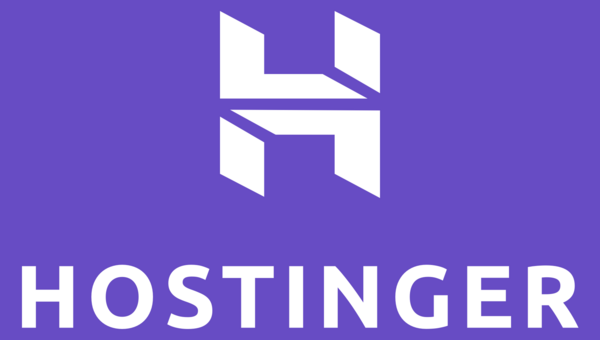Starting a blog in 2024 presents thrilling opportunities, but it also presents challenges unique to the digital age. To remain relevant, aspiring bloggers must embrace new trends and technologies as the internet advances.
Whether your goal is to share personal experiences, showcase expertise, or generate income, understanding the fundamentals of blogging is more crucial than ever. The journey begins with a solid foundation, from selecting the right niche and platform to understanding your audience and the content they value.

Table of Contents
Starting a Blog in 2024 and making money with it
A blog is a digital platform where content is organized chronologically, showcasing the most recent posts at the top. It’s typically maintained by individuals or small groups and updated regularly with engaging and informative content across various topics.
This platform is known for its personal, conversational writing style. It often includes a comments section where readers can engage directly with the content creators. Blogs can serve various functions, from sharing personal anecdotes to delivering expert advice and everything in between.
To turn a blog into a money-making venture, one must first choose a niche that aligns with their passion and a market need, ensuring the content is appealing and valuable to a specific audience.
Monetizing a blog can be achieved through several methods, such as affiliate marketing, where you earn commissions for marketing another’s products, selling digital or physical products, offering subscription services or exclusive content, and placing ads through networks like Google AdSense. Successful monetization requires consistent, high-quality content creation to grow and maintain a dedicated readership and strategic marketing to increase visibility.
Things you should consider before starting a blog in 2024
Starting a blog in 2024 involves carefully considering several key factors to ensure its success. By focusing on these essential steps early on, you can effectively set your blog toward rapid growth and quickly achieve your blogging objectives.

Niche Selection
Selecting an appropriate niche is a vital initial step in creating a blog. Market trends should inform your selection, competition level, interests, and blogging goals. A niche defines the specific subject matter of your blog content.
Some niches you can consider are as follows. You can divide them into their sub-niches, too.
- Technology
- Artificial Intelligence
- Gardening
- Cars and Automobiles
- Hiking
- Kayaking
- Cycling
- Photography
Click Here for more Niche ideas.
There are millions of other niches you can consider. You can even delve deeper by focusing on sub-niches within these broader categories. Selecting a specific niche allows you to demonstrate authority, expertise, and experience in that area, improving your chances of ranking higher on Google. Focusing on a particular niche also helps in crafting a distinct brand voice.
Platform Selection
Choosing the right platform is critical for effectively launching your blog. While several options are available, such as Wix, Blogger, and custom-built tools, I highly recommend WordPress. It is a content management system tailor-made for blogging.
WordPress is an open-source platform that is free to use and can easily be hosted on a shared server. It offers user-friendly features for creating and designing blog posts and an optimal layout.
Moreover, WordPress facilitates the integration of SEO tools, which greatly simplifies the process of writing SEO-optimized blog posts. With continuous developments in WordPress-specific tools, it has become an even more versatile platform, extending beyond blogging.
SEO plugins such as RankMath, Yoast, and AIOSEO significantly enhance the growth potential of WordPress blogs, while various blogging themes provide sophisticated and attractive designs for your blog.
RankMath significantly improved my content optimization for Google Search Engines, leading me to become an SEO Consultant. It has been instrumental in enhancing my website’s visibility and contributing to my success in the field.
Noshad Ali
Domain Name Selection
A domain name is the address of your website; for example, https://noshadali.com is a domain.
To start a blog, you must first choose and purchase a domain name. While you can select any name, choosing one that relates to your niche is advantageous, as this can help attract the right audience.
After acquiring your domain, the next step is to secure web hosting, providing the necessary infrastructure to host your website online.
Web Hosting Selection
Choosing the appropriate web host is a critical choice that significantly impacts the growth of your business and blog. A web host essentially serves as your website’s residence on the Internet, making it accessible to anyone interested in viewing it.
Web hosting services provide essential resources such as bandwidth, databases, emails, and security, among other features.
Opting for a high-quality web hosting service can enhance your website’s speed, encouraging visitors to stay longer and engage with your content.
Various types of hosting services are available. Shared hosting and WordPress-specific hosting are common options for new blogs.
WPX, for instance, is renowned for offering excellent WordPress hosting services.
As your blog grows and traffic increases, potentially reaching millions, you may find that your initial hosting solutions are insufficient. Upgrading to a dedicated server or VPS (Virtual Private Server) might be necessary.
However, to start out, I recommend choosing a well-reviewed WordPress or shared hosting solution that fits within your budget.
Here are some of my favorite web hosting services:


Exploding Topics
By now, you’ve chosen your niche, selected WordPress as your blogging platform, and picked a web hosting service.
The next step is to begin writing. First, identify the right topics by focusing on what’s currently trending. This strategy will enhance your chances of attracting more visitors to your blog.
Exploding Topics and Google Trends are invaluable for discovering popular topics and predicting future trends.
Once you’ve identified a relevant topic, optimize it with the best keywords to ensure your blog gains traction on search engines. Start crafting your content and get ready to see your blog’s visibility increase.

Keyword Research
Once a topic has been chosen, the next essential step is to pinpoint the most effective keywords to target. You can use tools such as Semrush, SERanking, Ahrefs, and Ubersuggest to discover trending keywords. I have used these tools and found them effective for growing my blog.
Your goal is to find keywords with low competition yet a high number of average monthly searches. These tools provide these metrics and can forecast future trends for these keywords. Gather a set of relevant keywords and organize them into a cluster to incorporate strategically into your content.


Ensure that your main and secondary supporting keywords are integrated into the title, headings, main content, and image tags. However, be cautious not to overuse them; instead, employ them judiciously to maximize their impact without compromising the quality of your content.
Check your Website health with SERanking
AI Writing Tools Selection
It’s time to begin crafting your article. While this process was traditionally manual, ChatGPT and other AI writing tools have revolutionized content creation.
Effective use of ChatGPT and similar AI writers hinges on crafting prompts well. With well-designed prompts, these AI tools can generate highly relevant content.
Additionally, specialized tools like Surfer SEO and RankMath Content AI are invaluable for bloggers. These tools assist in keyword research, content creation, and SEO optimization of posts. They also guide the optimal word count and recommend internal and external links, media usage, and headings.


Leveraging these AI writers, you can produce top-notch, SEO-friendly articles poised to rank well on Google.
SEO Tools Selection
Finally, to further enhance your article’s SEO, tools are designed to optimize elements like meta descriptions and URLs and provide additional recommendations to refine your content’s SEO efficacy.
These tools also allow you to conduct audits on your website or blog, pinpointing areas for improvement. They generate audit reports highlighting broken links, non-functioning pages, and headings that are too short or too long.
Utilizing these SEO tools can significantly boost your blog posts’ visibility on Google, driving increased traffic to your website.
How to write blog posts to get traffic?
Now that you have all the necessary tools and know-how to start your blog, it’s crucial to understand the types of posts you can write to attract traffic.
Blog posts can be broadly classified into two main types: informational and transactional. These categories encompass the essential content required for a blog.
Informational posts aim to educate your audience about your chosen topic, which can increase traffic to your blog.
On the other hand, transactional posts are designed to drive conversions. They typically earn revenue through affiliate marketing. You can strategically use internal links in your informational posts to funnel traffic to your transactional posts, ideally leading to conversions.
Focusing more on crafting informational posts is advisable, as they attract more site traffic and increase the likelihood of successful hits and conversions on your transactional posts.
How to monetize your blog?
Now, you’re at a crucial phase in your blogging journey: monetizing your blog. There are several strategies to generate income from your blog, and here are a few popular methods:
Affiliate Marketing:
As of 2024, affiliate marketing remains one of the most effective ways to earn money through blogging. This involves promoting other people’s products or services and earning a commission on the sales. You can promote various products, including software tools like email marketing and SEO platforms, physical items like gardening supplies, or even products from major online retailers like Amazon.
To start, you need to sign up for an affiliate program. Once your application is approved, you’ll receive an affiliate link to include in your blog content and calls to action (CTAs). This method is particularly advantageous because you can earn a commission better if the affiliate product has a long cookie duration.
Google Ads
Many bloggers generate revenue by partnering with Google AdSense, which enables them to display Google ads on their blogs. You earn money based on the number of visitors who view or click these ads.
To get started, sign up for Google AdSense and have your website approved. Once approved, you can begin displaying Google ads on your site.
Sponsored Ads
Sponsored content is another lucrative method for monetizing your blog. As your blog grows in popularity and draws a significant audience, it becomes a desirable platform for companies seeking visibility. These companies frequently propose that you create posts highlighting their products or services. They will compensate you in exchange for crafting these tailored posts that integrate their offerings into your content.
This collaboration offers a direct source of income and boosts your blog’s credibility and content variety, provided that the sponsored products or services are consistent with your niche and values. It’s a win-win situation: You get paid for your content creation efforts, and companies benefit from the exposure to your engaged audience.
Guest Posting
Guest posting is another well-known method for monetizing a blog. Domain authority (DA) and domain ranking (DR) are important metrics for your website. As these numbers increase, your site becomes more attractive for backlink collaborations.
This involves newer bloggers reaching out to you for what’s known as “link juice” to transfer SEO benefits from one site to another. Google’s search engine algorithm favors links from high-DA or high-DR sites as an endorsement, boosting the linked site’s perceived authority.
Blogs with high DA and DR can leverage this by charging new bloggers for backlinks. The cost for such links can range from as little as $10 to as much as $500, depending on your site’s authority. This creates a revenue opportunity where you can monetize your blog’s credibility and ranking power.
Performance Tracking
Integrating your website with Google Analytics and Google Search Console is crucial for effectively monitoring and enhancing its performance. These powerful tools provide comprehensive insights into your website’s traffic, revealing detailed information about your visitors, the keywords your site is ranking for, and other valuable analytics.
Setting up your site with Google Analytics allows you to analyze user behavior, including which pages they visit most often, how long they stay on your site, and what actions they take. This data is essential for understanding your content’s effectiveness and making informed decisions to improve user engagement.
Likewise, Google Search Console provides tools and reports that assist in tracking your website’s search traffic and performance, pinpointing problems, and enhancing your placement in Google Search results. Utilizing these insights allows you to refine your SEO tactics, address navigational problems, and better understand how Google perceives your site, which is crucial for boosting your blog on search engines.
Update blog posts Regularly
It’s essential to update your blog posts regularly to reflect the latest developments and insights on the topics you cover. Keeping your content current enhances your blog’s credibility and authority and improves its SEO performance, as search engines favor regularly updated content.
This practice ensures that your readers always have access to the most relevant and up-to-date information, which can increase reader retention and encourage more frequent visits to your site. Keeping up-to-date with your subject areas and integrating fresh information into your articles ensures your blog remains a vibrant and informative resource.
Summary
Starting a successful blog involves several key steps. First, choosing a niche and a suitable blogging platform, like WordPress, is crucial for targeting the right audience and managing content effectively. Opting for a reliable web host is equally important as it provides the necessary infrastructure for your site.
Once set up, tools like Google Analytics and Google Search Console help track and optimize your blog’s performance, offering insights into visitor behavior and search rankings.
Several strategies can be implemented to monetize the blog. Affiliate marketing is a favored choice among bloggers, enabling them to generate commissions by endorsing products from others.
Additionally, incorporating Google AdSense enables earning through ad views and clicks.
For blogs with significant traffic, sponsored content and guest posting offer further revenue opportunities. Regularly updating blog posts ensures the content remains relevant and improves SEO, enhancing the overall effectiveness and profitability of the blog.
FAQs
1. Can I start a blog if I have no experience?
Absolutely! Many successful bloggers started with no experience. Platforms like WordPress offer user-friendly interfaces that guide you through the setup process. Numerous resources and tutorials online can help you get started and learn as you go.
2. How can I get people to see my blog?
To attract readers to your blog, concentrate on producing high-quality, meaningful content that meets the desires and interests of your intended audience. Similarly, Google Search Console supplies tools and reports that aid in monitoring your website’s search traffic and performance, identifying issues, and improving your rankings in Google Search results. and promote your posts through social media and other online platforms.
3. Is it possible to start a blog for free?
You can begin blogging at no cost using platforms like WordPress.com or Blogger. These services provide basic blogging functionalities at no cost, though they often come with limitations like less control over customization and a domain name that includes the platform’s branding.
4. Do blogs still generate revenue?
Yes, blogs can indeed generate income. Despite the competitive nature of blogging, multiple avenues exist for monetizing a blog, such as affiliate marketing, sponsored content, advertising, and selling both digital and physical products.. Success often depends on niche selection, the quality of content, and effective marketing strategies.
5. I’m having trouble choosing a niche for my blog. What should I do?
When choosing a niche, consider your passions, expertise, and market demand. Look for a subject you are genuinely interested in and knowledgeable about, and make sure there is an audience for it. Checking out trends on Google Trends and seeing what’s popular on social media can also provide insights into viable niches.
6. Writing isn’t my strength. How can I still create good content?
You can still create engaging blog content even if you’re not a natural writer. Consider using tools like Grammarly to help with grammar and spelling. You can also use videos, infographics, and images to enrich your posts. Practice makes perfect, so keep writing; your skills will improve over time. Additionally, you could consider collaborating with guest writers or hiring freelance writers to help produce content.
